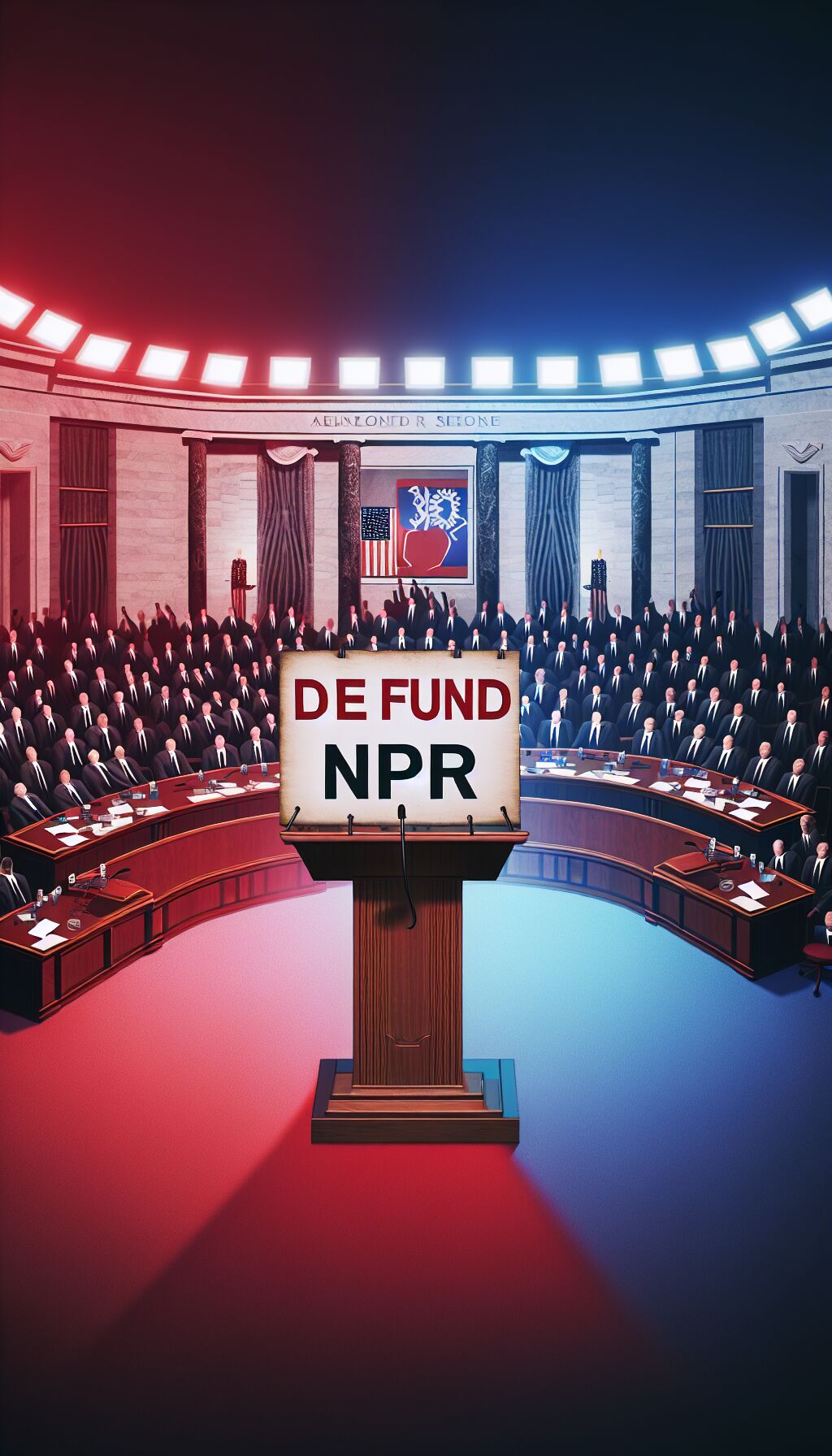Republican Lawmakers Renew Push to Defund NPR and PBS
By Fox News Team
FIRST ON FOX: In a significant political maneuver, Republican lawmakers are once again intensifying their efforts to eradicate federal funding for National Public Radio (NPR) and the Public Broadcasting Service (PBS). This renewed initiative emerges amidst a tumultuous restructuring of the federal bureaucracy under the Trump administration.
Legislative Action in the House
Leading the charge in the House of Representatives is Rep. Claudia Tenney, a Republican from New York. She is spearheading a bill that aims to stop taxpayer money from flowing to both media outlets. The proposed legislation seeks to redirect any existing federal funds away from NPR and PBS and instead allocate these resources to reduce the national debt. This legislative effort reflects a growing sentiment among some GOP lawmakers to revise federal funding priorities.
“As a former newspaper owner and publisher, I understand the vital role of balanced, non-partisan media. Unfortunately, these taxpayer-funded outlets have chosen advocacy over accuracy, using public dollars to promote a political agenda rather than report the facts,” Tenney expressed in a statement to Fox News Digital.
Support from the Senate
The Senate is not lagging behind in this defunding initiative. Sen. Mike Lee, a Republican from Utah, is championing a parallel effort in the Senate. Lee articulated his stance, stating, “Americans have hundreds of sources of news and commentary, and they don’t need politically biased, taxpayer-funded media choosing what they should see and hear. PBS and NPR are free to compete in the marketplace of ideas using donations, but their public subsidy should end.” His comments underscore a critical viewpoint that many Republicans hold regarding public media’s role in news dissemination.
Background and Criticisms of NPR and PBS
The long-standing Republican critique of NPR and PBS centers around perceived liberal bias in their reporting, despite the fact that less than 1% of NPR’s funding comes directly from the federal government. The financial structure of NPR includes additional funding through local member stations that receive grants and then pay fees back to NPR. Moreover, a substantial portion of NPR’s budget, over a third, is generated from corporate sponsorships.
Similarly, PBS also receives a fraction of its funding from federal sources, supplemented by various other avenues. However, the current political climate under the Trump administration has accelerated demands to cease federal allocations to these media entities, coinciding with an intensifying purge of government spending that does not align with the administration’s agenda.
The Role of Elon Musk in the Debate
Adding to the controversy surrounding NPR is Elon Musk, the prominent entrepreneur who is spearheading the Department of Government Efficiency (DOGE) initiative under Trump’s administration. Musk has previously criticized NPR, succinctly declaring on his social media platform, “Defund NPR. It should survive on its own.” His advocacy for defunding public media resounds with many who favor a more market-driven approach to news and information.
Notably, shortly after acquiring X, Musk controversially labeled NPR as “State-Affiliated” media—a designation typically reserved for government-operated press organizations in authoritarian regimes. This label sparked further debate on the nature of NPR’s funding and editorial independence.
Future Actions and Hearings
Tenney’s legislative proposal is one of several ongoing efforts to challenge NPR and PBS’s funding during the current congressional session. Another prominent figure, Rep. Marjorie Taylor Greene from Georgia, is taking a more aggressive stance as chair of the DOGE subcommittee under the House Oversight Committee. Greene has indicated her desire to summon the heads of NPR and PBS to testify before her committee, signaling a more confrontational approach to public media oversight.
